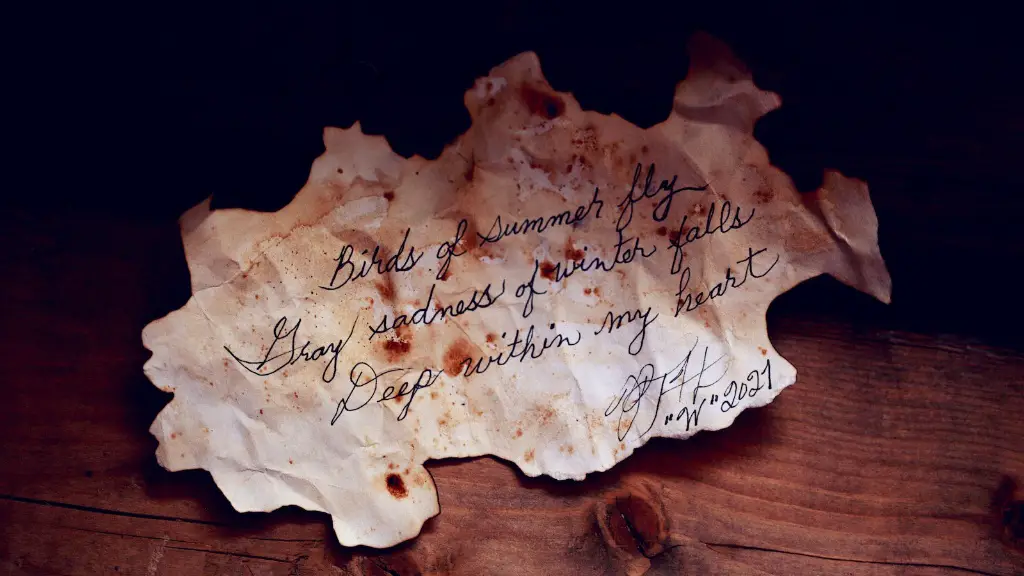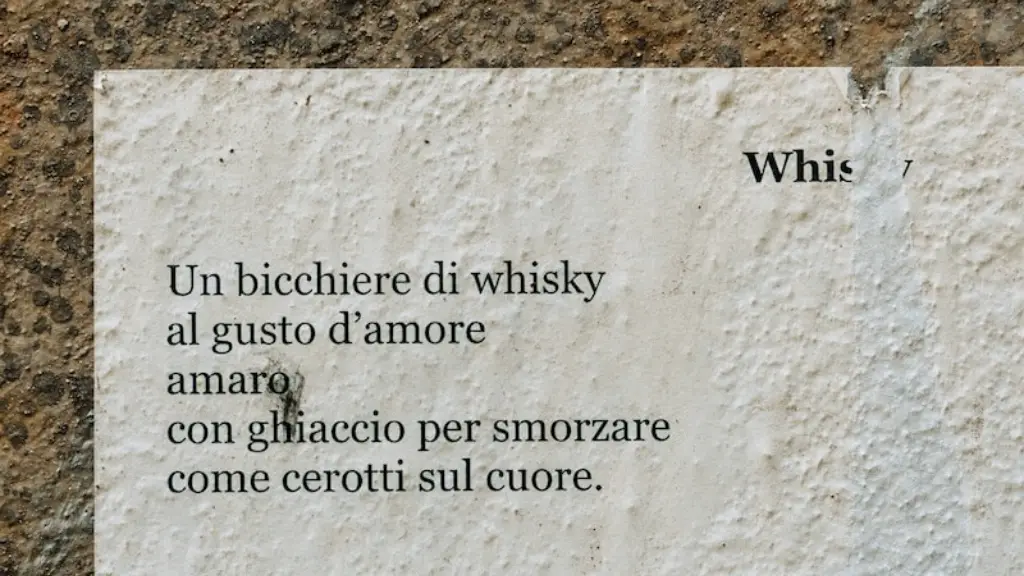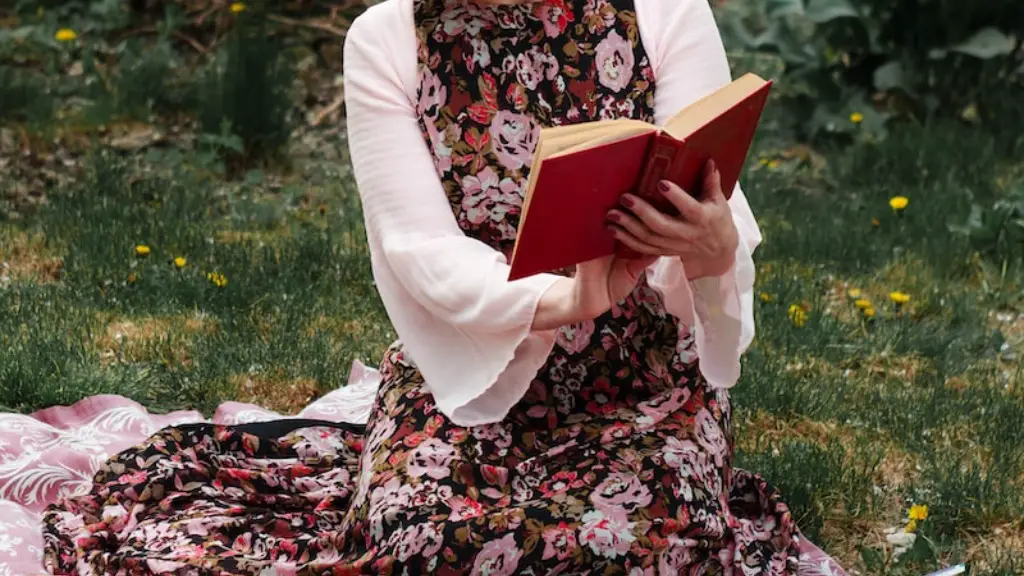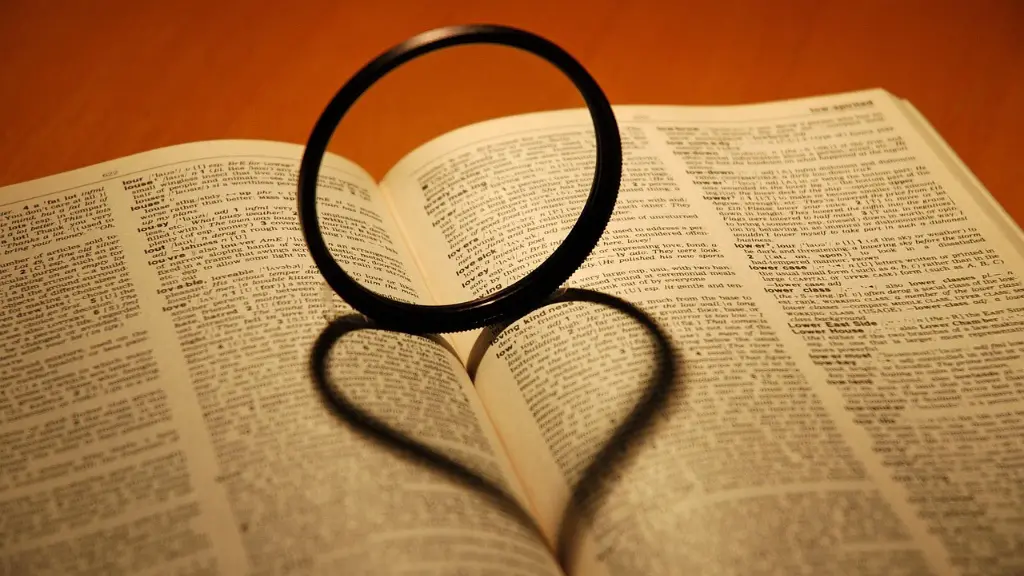Ode Poetry is defined as a literary form of writing composed of poetically written, expressively emotional verses that addresses and praises a body, object or idea. It is said to have originated from Ancient Greece and has been used throughout the ages by many authors of different countries and cultures. Odes are categorized based on their length and content. Lyric Odes are the type most commonly found, and can range from short to lengthy with varying lyrical and or descriptive content. Odes are typically composed for public reading or for private recital, and are often written on the subject of love, faith and honor. Themes can cover a wide range of topics from classical to contemporary.
An Ode Poem is usually composed in a structure that has a prologue, a series of stanzas, and an epilogue, although modern odes can also have alternative formats. Furthermore, a classical ode usually consists of three parts – the strophe, which introduces the poem, the antistrophe, which further explains and develops the poem, and the epode, which concludes and often repeats the main idea of the poem. Most odes also tend to be rhymed and lyrical. A regular poem, while it may contain rhyme and lyrical content, is not an ode, since it does not encompass the same structure, or use the same themes as an ode.
Ode Poetry is considered to be one of the most sophisticated art forms, as it encompasses aspects of rhythm, literary devices, and meaning, all in one. One of the major hallmarks of odes is the use of expressive, emotionally charged language that is often singled out as being especially poetic. It often delves into concepts such as love, admiration, and reverie and has the ability to deeply connect to its audience.
The point of writing an ode is often to express admiration, love, and devotion for a subject, or to illustrate and celebrate a joyful moment or event. This type of poem often communicates a feeling of awe and admiration for the things that one holds dear, with the intention of conveying a personalized and unique message of respect or reverence towards the subject. Odes have a strong, deep impact on the reader or listener, and this is often why poetry consisting of odes is so highly regarded in the literary world.
As a form of admiration, odes often make use of phrases and words such as “glorious”, “holy” and “sacred” which can help to accentuate and further emphasize the sentimentality and poignancy of the poem. Furthermore, odes provide an avenue for conveying a thought or concept in a more sophisticated and profound manner than regular poetry. It is through these expressions of elevated language and sublime sentiments that odes can be told in a beautiful and meaningful way.
In today’s world, individuals often express odes in a variety of forms, ranging from celebrating a special occasion in a thoughtful way to conveying grief or sorrow. Odes remain a strong, deeply-rooted part of modern culture, and have been used to create powerful and unique artwork for centuries.
Romantic Themes in Ode Poetry
Ode poetry has become an increasingly popular form of writing in the literary world and an avenue for expressing different romantic themes. Common romantic themes expressed in odes include love, joy, beauty, and pleasure. These common themes are typically expressed in a variety of formats, beginning with a prologue or introduction and ending with an epilogue or conclusion.
An example of a classic ode can be seen in the 15th century poem, “The Romantic Ode”, by Petrarch. In the poem, Petrarch expresses his admiration and passion for his lover in a touching, lyrical manner. He conveys sentiments such as “Your beauty transcends all else,” and “Your grace, of a higher order than that of Venus.” He uses language that encapsulates his feelings of love, admiration and profound delight in another human being.
In modern-day ode poetry, the same romantic themes continue to exist and be expressed. In many cases, the same passion and sentiment is expressed but with a modern twist. Odes can be written to celebrate new life, special moments, or even lost ones. They are written to commemorate experiences, anniversaries, or even to express sentiments of love for a friend or significant other.
Odes truly hold a unique place in literature for the ability to express profound emotions in the form of lyric and poetic prose. They have the power to evoke deep and lasting emotion in their readers, setting them apart from ordinary poems.
The Meaning in Odes
The meaning and purpose of odes can vary, depending on the culture and the context in which they are written. Traditional odes stem from Greek times, often and were usually composed as a form of praise to a remarkable body, object or idea. Odes were sometimes written to honor a country’s gods and deities, to exalt monarchs, or to sing homage to a successful battle or conquer.
In contemporary society, odes often retains the same expression of adoration and admiration expressed in the past, but may also be based on different themes and topics. They might celebrate life, a person’s accomplishments, civil rights or even moments of incredible sadness.
Odes have also been used to convey important realities and present them in beautiful and profound ways. For example, poet Langston Hughes used his works to convey the importance of the civil rights movement of the 1950s and ‘60s in America, frames his experiences in the form of a passionate, lyrical ode.
Odes might also rely on personal relations or expressivity, or even a musing on the human condition. Odes can be a stunning articulation of mortality, resilience, dedication and beauty. At its core, odes are a sure and powerful way to express lofty thoughts and feelings in lyric and poetic prose.
Ode Poetry in History
Throughout history, Ode Poetry has been seen as one of the most profound art forms and has been widely used by writers of different countries and cultures to express emotions and sentiments. Odes have also been a major influence in literature and have inspired some of the most famous works of art.
For example, the ancient Greek poet Pindar wrote odes that were read in front of crowds of people during the Panathenaic Games. Pindar’s odes were so highly respected that they were even read in the Athenian school curriculum of the 5th century BC.
In the Renaissance period, ode poetry was written in a variety of different lyrics and styles and is often considered the basis for the poetry of the period. Authors such as Shakespeare, Spenser, Donne and Milton are widely known to have utilized odes in their works.
John Keats is known for his renowned odes, written during the Romantic period in the 19th century. Keats’ odes are characterized by the use of expressive and deeply emotional language, and has become an iconic and widely recognized form of Romantic poetry.
Another famous ode poet of the nineteenth century is Walt Whitman, who is known for his passionate and passionate lyric works. He often wrote about his admiration towards his country and humanity, expressing his love and devotion through lengthy, lyrical and poetic verses.
Today, odes remain an essential part of poetry and are a part of many literary works and anthologies. This form of poetry has the power to truly and deeply move the reader with its sentimentality, emotion and passion.
Potential Purpose of Ode Poetry
Odes, due to their length and poetically charged writing, have the potential to be beneficial in many ways. They can be utilized as an avenue of self-expression, as a tool to share ideas, or even to illustrate an experience or moment in a more meaningful manner. They can also be a source of inspiration and connection among people, much like the works of great writers of the past.
In the professional world, odes are also a powerful way to evoke emotion and admiration for coworkers, leaders or colleagues. Odes can create a sense of motivation and camaraderie among colleagues and celebrate successes and extraordinary events.
Some of the greatest works of literature in history have taken on the form of an ode and have had the incredible potential of being a lasting source of inspiration and admiration in the minds of readers. They have the ability to not only engage in the reader but also evoke emotion and thought in the form of lyrical prose.
Ode Poetry in the Digital Age
In the digital age, odes can be a powerful tool for expression in many different mediums. With the growth of technology, odes can also be seen in different formats, including music, visual artworks and even audio recordings. This can be seen in how odes are more accessible in the online world and can be shared quickly on various platforms, such as social media and blogs, allowing people to connect and share their accomplishments or special moments with their friends.
In the literary world, the traditional form of odes has also been revitalized and adopted for a more digital era. This includes the use of digital platforms for public readings or recitals, or even for private reflection and meditation, making them more widely available to people from all over the world.
In many ways, odes have the same power to inspire and motivate, as well as evoke emotion and connect with the reader, that it has historically done. The digital age has simply been a platform for modern writers to express their thoughts, feelings and ideas in an increasingly sophisticated and poetic way.
Conclusion of Odes Styles
The style and structure of ode poetry can be adapted to be relevant in different scenarios, considering the messages and feelings they can evoke. Therefore, an ode is considered by many to be an invaluable tool in various situations to be used to convey thought, emotion and meaning.
Ode Poetry has been used throughout the ages and is still a widely used and highly regarded form of writing today. With its emotional power, lyrical rhymes and profound meanings, odes will continue to be used to provide meaningful insight into the many aspects of life.





